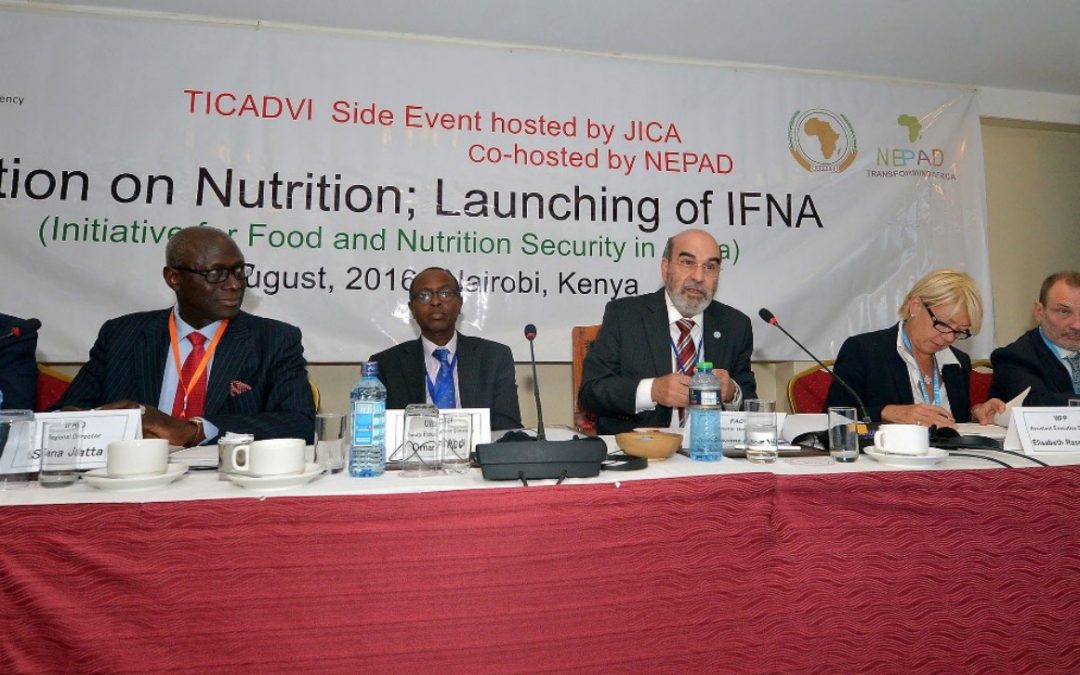Africa is the only continent where the number of undernourished people is increasing, with over 230 million suffering, meaning that one out of five persons does not have an adequate amount of food. There are several African countries today where more than 40% of children are stunted.
Against the backdrop of this dire nutrition situation in Africa, the Initiative for Food and Nutrition Security in Africa (IFNA) was launched in 2016, in the Sixth Tokyo International Conference on African Development (TICAD VI), at the event “Action on Nutrition; Launching of IFNA” organised by the Japan International Cooperation Agency (JICA) and the New Partnership for Africa’s Development (NEPAD).
At the event, the “IFNA Declaration” was adopted in the presence of representatives of 13 African countries and various international organisations such as the Bill & Melinda Gates Foundation (BMGF), the Food and Agricultural Organisation (FAO), the International Fund for Agricultural Development (IFAD), JICA, NEPAD, the United Nations Children’s Fund (UNICEF), the World Food Programme (WFP), the World Health Organisation (WHO) and the World Bank (WB).
The goal of IFNA is to accelerate nutrition actions and to enhance policies and programmes aimed at scaling up interventions to address the multiple challenges posed by malnutrition in all its forms in African countries, paying due respect to African ownership, knowledge and wisdom. The target period is from 2016–2025. The initial batch of countries includes Burkina Faso, Ethiopia, Ghana, Kenya, Madagascar, Malawi, Mozambique, Nigeria, Sudan and Senegal.
IFNA takes a multi-sectoral approach which involves different sectors including agriculture, education, health, social protection and the private sector. To differentiate with already-existing initiatives, IFNA put forward agriculture as entry point in order to enhance sustainability and inclusiveness of the nutritional improvement in accordance with the country context. IFNA will help realise an Africa that is free from hunger and malnutrition.

Recent Comments